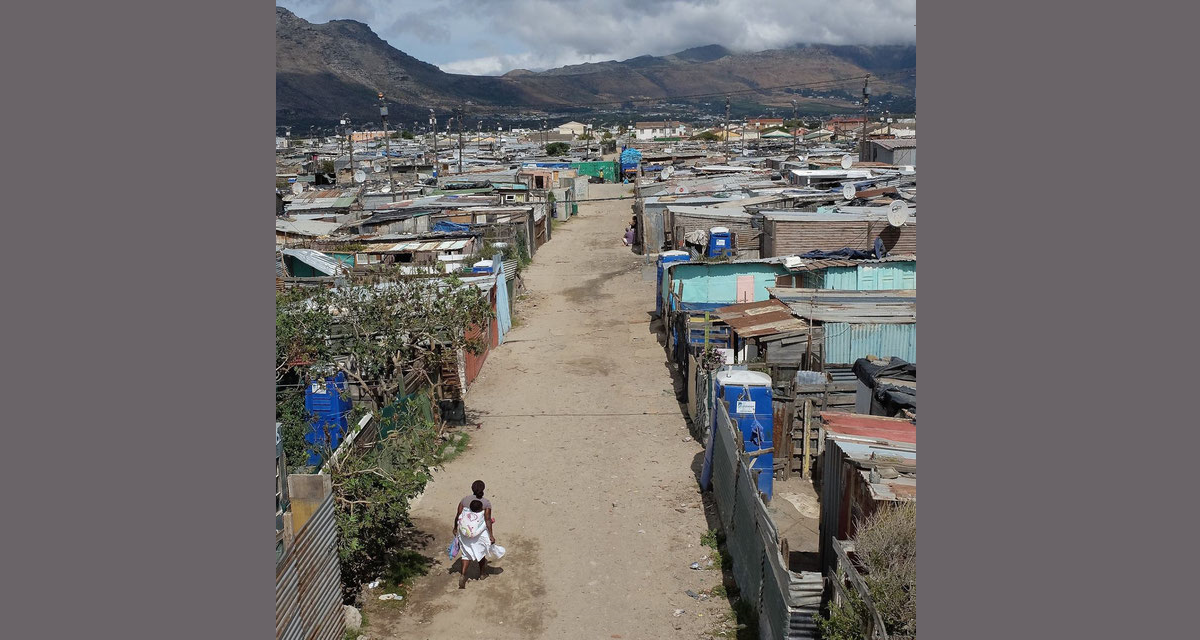Early Childhood Education in Fragile Settings blog series – First SIPP blog post

Authors: Lizette Berry and Linda Biersteker, The Children’s Institute – University of Cape Town
Introducing Vrygrond, our South African partner community
UKRI GCRF Safe, Inclusive, Participative Pedagogies (SIPP): Early Childhood Education in Fragile Settings is a partnership research project based at University of Edinburgh and undertaken with partners in Brazil, Eswatini, Palestine, South Africa. We are working with communities, local and national partners to promote change, for young children before school age.
The South African partner community is Vrygrond, 20 kilometers from Cape Town central. Vrygrond or ‘free ground’, was one of the first informal settlements in South Africa. The Overcome Heights section still lacks municipal infrastructure – roads, sewage system and piped water. Though poverty stricken and subject to severe gang violence, the area is vibrant and bustling with informal businesses as residents try to eke out a living. The diverse population is around 42,000 people, with an estimated 5,000 children under 6 years. It includes many migrants mostly from Malawi and Zimbabwe and a mix of local Coloured, Afrikaans speaking households and African Xhosa speakers. Many faith-based and civil society organisations and coalitions are active in the area.
Vrygrond has a vibrant Early Childhood Development (ECD) sector and active ECD Forum where principals meet to share and discuss issues. True North, our local partner, provides training and support focused on young children. Prior to our Covid-19 lockdown, there were 37 ECD centres offering early learning and day-time care, though together they served less than 50% of the children in the area. Since lockdown, some eight centres have closed and by the end of 2020 only 860 of the previous 2,000 children were attending. Centre quality varies and only eight of the centres meet government licensing requirements.
After delays due to Covid lockdown and closure of most services, the research team of the Children’s Institute and True North have identified a community advisory group to guide the case study work. The first steps of our joint engagement will be to explore ECD practitioners, parents and children’s understandings of the key concepts of the SIPP project – safe, inclusive and participatory which will then inform the action plan.
An important goal is to enable synergy of the project’s activities with True North’s objectives; one of these is to reach out to families of young children not accessing ECD centres or programmes. This gap in services was exacerbated due to the Covid pandemic. Creative methods for engaging parents in early learning and promoting stimulating home environments, where young children cannot attend ECD centres, will be explored, developed and tested with community partners.
This rare opportunity to bring marginal voices to the policy debate in South Africa is at the heart of our case study.
The support of the Economic and Social Research Council (UK) is gratefully acknowledged.




Comments are closed
Comments to this thread have been closed by the post author or by an administrator.